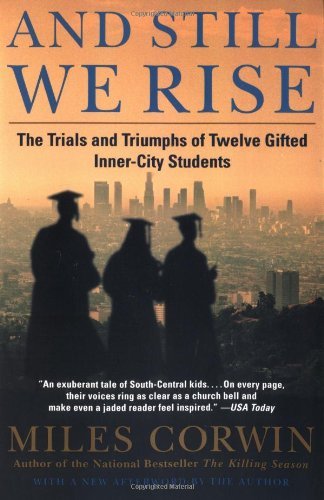
The Freedom Writers Diary
Book Description
What happens when a group of at-risk teens steps into a classroom that promises to change their lives forever? In "The Freedom Writers Diary," the raw, unfiltered voices of diverse students come to life as they confront deep-seated racial tensions, violence, and personal struggles. Guided by an inspiring teacher, they discover the transformative power of writing, sharing their stories, and breaking the chains of their pasts. Each diary entry reveals a journey filled with heartbreak, resilience, and hope. Can a simple pen and paper ignite a revolution of change in a world that often feels unforgiving?
Quick Book Summary
The Freedom Writers Diary chronicles the real-life experiences of Erin Gruwell, a young teacher, and her high school students from Long Beach, California, as they use journal writing to transcend personal and societal barriers. Facing a classroom divided by racial tensions, poverty, and violence, Gruwell encourages her students to express their feelings and life experiences through diary entries. These candid writings reveal stories of trauma, loss, and hope, as students begin to understand both themselves and each other. Over time, the act of sharing and documenting their struggles fosters empathy, unity, and empowerment, granting them the courage to aspire beyond their circumstances. The book ultimately demonstrates how education and self-expression can transform lives, fostering resilience and a belief in the possibility of change.
Summary of Key Ideas
Table of Contents
The Transformative Power of Writing
Erin Gruwell's entry into the world of teaching marks the beginning of a transformative journey for both her and her students at Wilson High School. Assigned to a class labeled as "unteachable," Gruwell recognizes the overwhelming challenges her students face: racial segregation, gang affiliation, and the trauma of living in impoverished neighborhoods. From her first day, she is met with skepticism and resistance, but Gruwell refuses to lower her expectations. Instead, she introduces her class to diary writing, inspired by the lessons of Anne Frank and Zlata Filipović, urging each student to share their individual story.
Overcoming Prejudice and Violence
The students' diaries reveal powerful, unfiltered narratives of violence, discrimination, and survival. Many grapple with homelessness, domestic abuse, and the daily threat of gang violence. As they write, students begin to process their emotions and traumas, finding validation in being heard. Gruwell assigns readings like "The Diary of Anne Frank," which resonates deeply, as students draw parallels between historical injustices and their own experiences. Writing becomes a conduit for healing, self-exploration, and the breaking of silence imposed by fear and alienation.
The Impact of Empathy and Community
A crucial turning point occurs as the class confronts their prejudices and realizes the common ground they share in pain and resilience. Through discussions, readings, and shared writing, barriers between students of different backgrounds and ethnicities erode. The classroom transforms into a space of empathy and understanding, where members support one another. Gruwell's unwavering dedication leads her to secure resources and organize field trips, exposing her students to new environments and possibilities. These experiences help broaden their horizons, inspiring them to dream of futures previously thought unattainable.
The Role of Education in Personal Change
The impact of education and community extends outside the classroom. Students find the strength to challenge destructive cycles, choose peace over violence, and pursue college educations. Many become the first in their families to graduate from high school. Gruwell’s innovative teaching earns national attention, showing how compassionate pedagogy and authentic engagement can empower marginalized youth. The collective identity of the "Freedom Writers"—modeled on the Civil Rights Era Freedom Riders—serves as a lasting symbol of hope and defiance against oppressive systems.
Resilience and Hope in Adversity
Ultimately, "The Freedom Writers Diary" illustrates that storytelling possesses the power to transform lives and communities. By writing and sharing, these once silenced teens reclaim agency over their narratives, finding validation and hope. The book urges readers to confront prejudice with empathy, highlighting the importance of inclusive education and the belief that every individual is capable of change. Gruwell and her students demonstrate that with resilience, support, and the freedom to express oneself, even the most marginalized voices can inspire profound social and personal transformation.
Download This Summary
Get a free PDF of this summary instantly — no email required.





